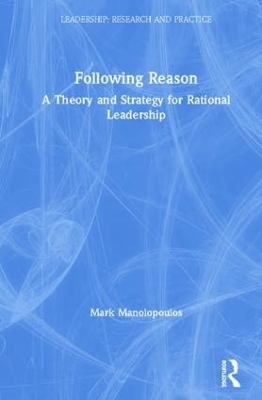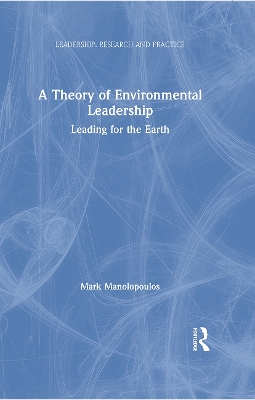Leadership: Research and Practice
2 total works
Throughout history, humanity has regularly followed anti-rational figures and forces: demagogic rulers, perverted deities, exploitative economic systems, and so on. Such leadership and followership have wrought all kinds of oppression and conflict. What if this pattern could be altered? What if society were led by Reason instead? Prompted by Cicero's exhortation to "follow reason as leader as though it were a god", Following Reason: A Theory and Strategy for Rational Leadership explores this intriguing and potentially transformative possibility.
Manolopoulos uniquely blends leadership psychology with a deep understanding of philosophical reasoning theory to show how leaders can bravely reimagine and reconstruct society. The book retraces leadership mis-steps in history, and proposes a more "logicentric" theory of leadership, built on compelling philosophical axioms and arguments. Following Reason emphasizes the weight of philosophy and cognition in leadership, and advocates for a diverse network that can create, uphold, and implement a blueprint for a better global society.
This wide-ranging and timely book is ideal for leadership, management, and philosophy students at undergraduate and graduate levels.
In A Theory of Environmental Leadership, Mark Manolopoulos draws on his original model of leading outlined in his cutting-edge book Following Reason to derive and develop the first properly systematic model of eco-leadership.
Suppose humanity's relation with the Earth may be described in terms of leadership "stages" or modalities: once upon a time, the Earth led or ruled humanity, and now we humans rule or lead the Earth. When the Earth led, the Earth flourished; now that humankind leads, the Earth flounders - ecological crises multiply and intensify. However, there might be a third stage or modality of leadership: humanity leading for the Earth, leading in a way that allows the world, including humans, to re-flourish. What would be the nature of this truly environmental form of leadership? A Theory of Environmental Leadership identifies and critically analyzes the two basic and incompatible positions associated with the way we construe and interact with the non-human: anthropocentrism (human supremacism) and ecocentrism (ecological egalitarianism). By rigorously analyzing and leveraging this polarity, this book outlines an innovative theory of eco-leadership together with some of its confronting-but-necessary measures.
Expansive and incredibly timely, A Theory of Environmental Leadership is ideal for a range of audiences, from scholars and students of environmental leadership studies to activists and policymakers. The book's remarkable clarity and engaging character also makes it suitable for the general public.

